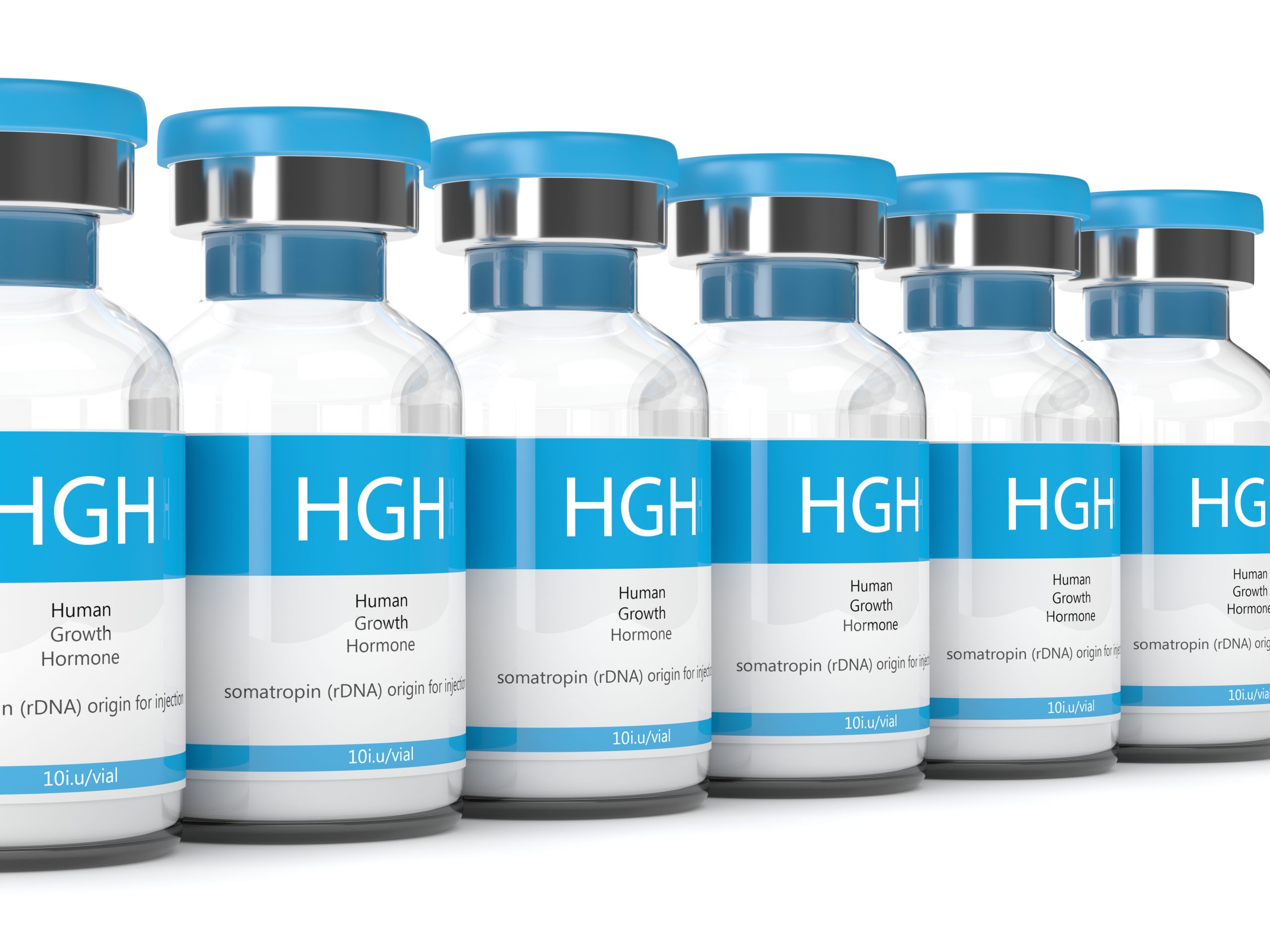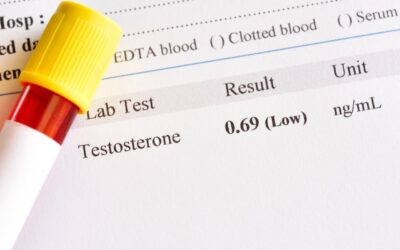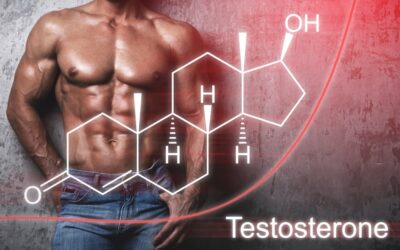The short answer is yes. If HGH (human growth hormone) is administered by a certified HGH clinic and monitored by a qualified doctor, it’s a perfectly viable therapy.
Thousands of people have been treated with HGH in the last several decades and reported incidence of fatalities is virtually none. The only danger of HGH is from cases where it was not done under a qualified HGH doctor.
In these cases, the individual was either taking many times the prescribed amount or wasn’t taking actual HGH. Doing so is potentially unsafe and even dangerous.
There has been speculation on both sides of the argument over whether HGH is safe or not. We’re going to explore those argument inside this article and shed new light on this growing debate, ultimately proving that HGH is a safe and effective treatment.
But first it would be helpful to know what HGH is and a bit about its history. We can then put it into better context in light of recent findings.
A Brief History of HGH
What exactly is HGH? It’s a hormone that’s produced naturally in the body from the pituitary gland in the brain. HGH is secreted in its largest doses during the childhood and adolescence phases of life. Secretion dramatically trails off after age 30.
HGH itself is nothing more than a string of amino acids, which are proteins. Most people confuse HGH with the term “steroids”. Yet it’s not a steroid and shouldn’t be associated with one.
On its own, and at normal levels, HGH plays an important role in the body. It regulates body composition (maintaining muscle and reducing fat), body fluids, metabolism, and bone growth.
In children and adolescence, HGH prompts the body to grow bigger and taller. However, when children lack HGH, their growth is often stunted.
When adults lack HGH, a host of symptoms can occur, including low energy, fat gain, atrophy of muscle and bones, lower libido, and lack of mental clarity.
The first uses of HGH therapy were for children with stunted growth. This type of therapy dates to the mid 1950’s and the HGH was extracted from animals.
In 1985 a synthetic form was created, making it less costly and more accessible and widespread. This is the form that is used today. It very closely mimics the HGH found in human bodies.
What Happens To HGH Levels As We Age?
Unfortunately, as we age, the body produces ever less human growth hormone. By the time we reach middle age, it’s not uncommon for HGH levels to be less than half of what they were in our formative years.
If we are lucky enough to arrive to our 70s and 80s, it can drop to less than a quarter of the amount secreted in our prime years. This is a major reason for the extreme drop off in health when people reach their 60s and beyond.
Consequently, many men are now turning to HGH clinics and HGH therapy. The theory is that by restoring lost HGH, the body can enjoy the same benefits it once had. Some of these benefits include better-looking skin, more muscle and less fat, a higher metabolism, faster cellular repair, and general anti-aging benefits.
But some detractors of HGH therapy are calling it unsafe. While there have been trials and studies conducted over the past several decades, no one single trial or study can point the finger conclusively in either direction.
The synthetic form of HGH has existed for nearly 35 years. If it was dangerous, it would not have been approved by the FDA and administered in HGH clinics around the world for all this time.
Possible Side Effects of HGH
As with any drug (though HGH is not really a drug) there are possible side effects. Everybody is different and no one “drug” or hormone will cause the same reaction in everyone.
Fortunately, the chances of being affected are low. Possible side effects are muscle aches, joint discomfort, swelling of the hands and feet, and headaches. If any of these symptoms are experienced while undergoing HGH, it’s best to discuss them with your doctor.
Under an HGH doctor, with routine checks in blood (most notably IGF-1), HGH therapy can work remarkably well and without any side effects. We’ve seen thousands of patients benefit from HGH therapy without any ill results.
When detractors bring up the side effects of HGH, they fail to leave out the benefits. We mentioned some already. But further benefits are possibly decreasing the onset of the diseases of old age, like Alzheimer’s, osteoporosis, and even cancer. Some studies even suggest HGH replacement decreases incidence of cardiovascular disease.
Does HGH Cause Cancer?
In all the studies we looked at, we could not find one that showed a link between HGH and cancer in adult men who were taking it as therapy under a supervised hormone doctor. These studies were of men with no benign cancer before starting therapy and only taking HGH in doses to regulate their normal levels.
The cancer scare comes from people who start HGH with undiagnosed cancer. Since HGH makes the systems of the body grow, cancer also grows. If an individual has cancer and doesn’t know it before starting treatment, HGH will most likely proliferate the cancer.
This is where HGH gets a bad rap. But men who are candidates for HGH therapy are often tested for benign cancer before starting treatment. It’s only when not under a qualified and certified HGH doctor that this can be a problem.
We have also seen studies indicating a correlation of children taking growth hormone and cancer, but they are inconsistent and inconclusive. As one such study points out, even in children who have had a malignancy before treatment:
“Despite the theoretical arguments, there is no evidence of an increased risk of tumor recurrence following GH therapy in replacement dosage in children previously treated for a malignancy.”
The other area where HGH gets bad press is with athletes who abuse it. HGH can act as a lifesaver for men low in HGH. But athletes have found that it can improve their performance and accelerate healing.
For this reason, it has been widely abused in sports – though not widely publicized because it’s illegal in most sports to use. When an athlete suffers an adverse effect from HGH, opponents point to the drug as the problem. However, it’s not HGH itself, but the absurd amount used by the athlete.
We’ve all seen athletes that look like comic book superheroes. Some of these athletes are taking many times the recommended dosage of HGH. Furthermore, they shouldn’t even be on HGH.
When people with normal HGH levels take abundant amounts of it for long periods of time (like some athletes), it can spur cancer growth if it’s already present in their system – as all the systems of the body grow under massive amounts of HGH.
For people who abuse HGH, symptoms could include muscle and joint pain, fluid retention, and carpal tunnel syndrome. In severe cases, high blood pressure and heart disease are possible.
But again, these symptoms affect people taking massive doses of HGH over a lengthy period. If a man low in HGH overdoses by even taking two times his recommended dosage, he may not even experience side effects.
This is because HGH is one of the safest therapies one can do. The same can’t be said for many other therapies or drugs. Even a small overdose of many common and recreational drugs could prove fatal. The same can’t be said for HGH.
HGH – Risks vs. Rewards
The risks of HGH under a supervised HGH doctor are very low. Remember, we are not injecting a drug that is foreign to the body, but simply restoring an essential substance that the body makes naturally.
When this is done, the body should function more efficiently. We already mentioned a few of the benefits of HGH therapy. But let’s look at some additional ones.
Patients on HGH report having more energy, a higher metabolism, and an improvement in their physique. HGH can also help reduce body fat, especially around the midsection.
When people speak of the risks of HGH, they fail to realize that the benefits received actually reduce health risks. Not only that, but the quality of life of that individual is enhanced as well.
Imagine having more energy to do the things you love? Can you visualize a better body? How about being able to eat more of the foods you love without gaining all the weight?
More Benefits of HGH Therapy
Let’s discuss a few more benefits of HGH. Please keep in mind that when talking about HGH therapy, we are specifically talking about injections. This is the most effective and powerful form of delivering HGH to the body. We feel it is also the safest.
Further benefits include improved strength and a greater tolerance to exercise. Human growth hormone supplementation can also reduce the risk of heart disease, which is the number one killer of people.
This is a huge benefit that doesn’t get mentioned enough. Heart disease accounted for 801,000 deaths in the U.S. in 2017. That’s about 1 out of every 3 deaths in the U.S.!
If HGH can reduce the risk of heart disease, even if there is a slight possibility of side effects, isn’t it worth the risk? Ask most people and they would much rather feel better, look better, and reduce risk of serious diseases if the only trade off is a slight possibility of side effects.
HGH in Hollywood
You may not be aware, but it’s highly speculated that some of your favorite Hollywood celebrities are turning to HGH. People like Sylvester Stallone and Joe Rogan talk openly about supplementing with HGH and testosterone replacement therapy.
As famous celebrities advance in age, their HGH levels will decline, as is normal in all people. These celebrities are turning in droves to HGH to maintain a youthful appearance and fit body.
While diet and exercise are also important, supplements like HGH and TRT are indispensable for reaching the look they want. Just notice the difference between some Hollywood celebrities in their 40s, 50s and 60s compared to regular people their same age.
If HGH was as dangerous as some speculate it to be, many celebrities who are on it wouldn’t take the risk. We know a lot of hormone doctors would say that HGH is a safe therapy – and one of the most effective ways to stave off the signs of aging.
What mother nature takes away from us, can be provided back, thanks to 21st century science. If you are over 30 and feeling any of the symptoms of low HGH, you may want to consider it as a therapy.
Conclusion
Thousands of clinics around the world offer HGH therapy to patients who desperately need it. While the long-term effects (30-40+ years) of HGH in its current form are unknown, we can see that it’s safe in the short term.
When adults age, a lack of human growth hormone means the cells don’t repair their parts as well. By restoring HGH, the cells and tissues of the body can regain their ability to repair at the same level they had done previously – when the person was younger.
For this reason, more and more men are turning to HGH therapy. Taken in conjunction with testosterone replacement it can be a very powerful anti-aging therapy that can revitalize your body and life.
If you are considering HGH therapy, it’s essential you do it with a certified HGH doctor and clinic. HGH is only safe under a doctor’s supervision with regular testing.
If you’d like to make an appointment with one of our certified HGH doctors, we’d be glad to make it for you.





